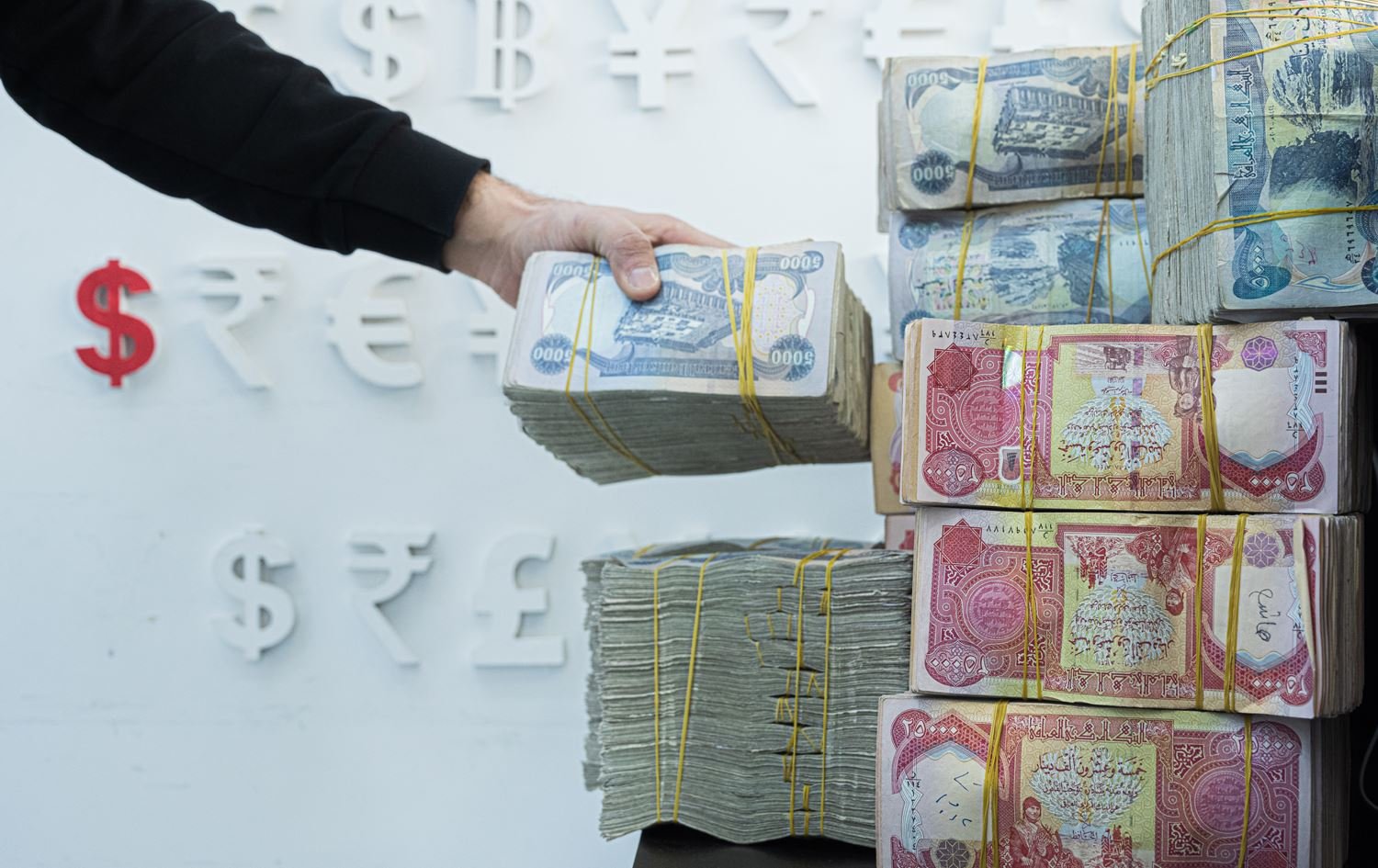Iraq’s Q1 2025 Budget: Spending Rises 12%, Oil Revenues Fall, Deficit Hits 891 Billion Dinars

Iraq’s Ministry of Finance has released its financial report for the first quarter of 2025, revealing a rise in government spending, a drop in total revenue, and an even greater reliance on oil as the backbone of state income. Despite slightly narrowing the fiscal deficit compared to last year, the report shows that Iraq’s budget remains heavily exposed to fluctuations in global oil markets and dominated by a rigid public wage structure.
Total government spending during the first three months of 2025 reached 28.14 trillion Iraqi dinars, up from approximately 25.08 trillion dinars in the same period last year—an increase of 12.2%, or just over 3 trillion dinars. This growth was overwhelmingly driven by operational expenses, which accounted for 94.7% of total spending (26.66 trillion dinars). Investment expenditure, by contrast, fell to 1.48 trillion dinars, down from 1.9 trillion dinars in Q1 2024—a reduction of over 420 billion dinars, or 22%.
A striking 80.4% of all Q1 2025 spending—22.6 trillion dinars—was allocated to salaries, pensions, and social security. The Ministry of Finance led all federal institutions in expenditure with 6.7 trillion dinars, followed by the Ministry of Interior at 3.3 trillion.
Total Spending: 28.14T IQD (+12.2% vs Q1 ’24)
Total Revenue: 27.25T IQD (-12.7% vs Q1 ’24)
91%
Oil Revenue
9%
Non-Oil Revenue
Investment Breakdown (1.48T IQD)
Core Expenses & Top Spenders
80.4%
of spending on salaries, pensions & social security
Top Spenders
The Kurdistan Regional Government (KRG) received 3.09 trillion dinars in federal funding during the quarter, marking an 23% increase from roughly 2.5 trillion dinars in Q1 2024. Of this, 2.35 trillion dinars went to civil servant salaries, 728.6 billion to social security, and 2.85 billion to miscellaneous grants and assistance. The dramatic increase reflects a political effort to stabilize KRG finances amid ongoing delays in oil export resumption.
On the revenue side, the government collected 27.25 trillion dinars in total income during Q1 2025, down from around 31.18 trillion dinars the year prior—a 12.7% drop. The fall was due almost entirely to a decline in global oil prices. Oil revenues made up 24.91 trillion dinars, or 91% of total income, up from 89% in Q1 2024. Non-oil revenues totaled just 2.34 trillion dinars, reflecting continued weakness in tax collection, customs, and domestic revenue diversification.
According to economist Dr. Nabil Massoumi, the oil revenue shortfall was driven by market conditions. “The average oil price in Q1 2024 was $76 per barrel,” he explained. “In the same period this year, it fell to $72.”
Despite the decline in revenues, the government ran a smaller budget deficit of 891 billion dinars in Q1 2025, down from an estimated 3.9 trillion dinars in the first quarter of 2024. This narrowing, however, came not from improved fiscal performance but rather from cuts to long-term investment spending—a trend that raises concerns about Iraq’s development trajectory.
Investment spending in Q1 2025 was concentrated heavily in a few sectors. The largest share—740.6 billion dinars (50%)—went to infrastructure and services. Industry followed with 291.2 billion dinars (20%), transport and communication with 255.8 billion dinars (17%), education and training with 149.1 billion dinars (10%), and agriculture with just 40.1 billion dinars (3%).
The report also sheds light on the spending of Iraq’s three presidencies. Combined, the Council of Representatives, Presidency of the Republic, and Council of Ministers spent 2.21 trillion dinars in Q1 2025. The Council of Ministers accounted for the lion’s share at 2.05 trillion dinars, of which 91% was operational. The Council of Representatives spent 144.4 billion dinars, and the Presidency 11.4 billion, with both institutions allocating negligible amounts to investment.
Presidential Spending: 2.21T IQD
Council of Ministers
2.05T
Council of Reps.
144.4B
The Presidency
11.4B
Taken together, the Q1 2025 data reveals a budget heavily skewed toward recurring costs, with declining revenues and deepening reliance on oil exports. While the deficit was narrower than last year’s, it came at the cost of development. Without structural reforms to diversify revenue and rein in wage spending, Iraq’s fiscal position remains vulnerable to external shocks—and its ability to invest in long-term growth remains constrained.









